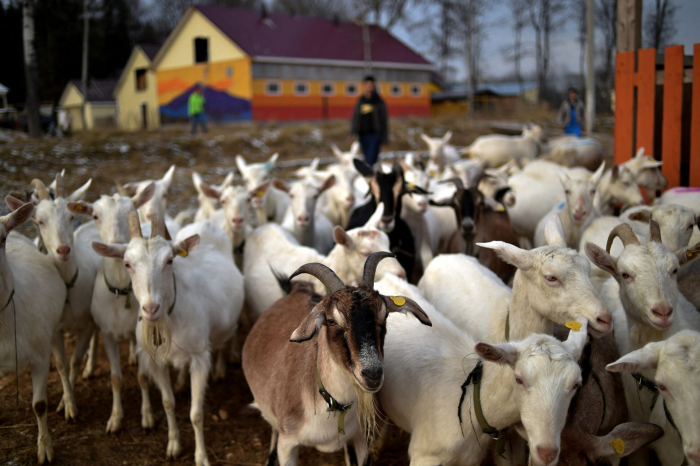Moscow and Pyongyang have a wide-ranging deal covering sectors including education, agriculture and tourism.
Goats for guns?
After a summit between Russian President Vladimir Putin and North Korean leader Kim Jong Un in June at which the international pariahs discussed mutual cooperation, Moscow has delivered a gift to Pyongyang.
Russia sent, drumroll, 447 goats to the North Korean city of Rason, the Russian agriculture safety watchdog Rosselkhoznadzor said in a press release.
The goats, which were exported from Russia’s Leningrad region, represent a first batch of farm animals that Russia intends to deliver to North Korea. The goats will provide dairy products to local children to relieve North Korea’s food shortages, mainly caused by government-related policies, with the situation getting worse during the Covid-19 pandemic.
According to Human Rights Watch, 10.7 million out of 25.9 million people in North Korea are malnourished, and 18 percent of children have impaired growth and development due to chronic malnutrition.
“Goat farms with a large capacity have been built in districts and counties of Nampho Municipality in the DPRK. As a result, foundation has been consolidated to smoothly provide dairy products for the children in the municipality,” reported North Korea’s Korean Central News Agency on the same day, indirectly confirming the shipment.
Russia has been cozying up to North Korea since its full-scale invasion of Ukraine in February 2022. North Korea has openly supported the assault and has been accused of delivering weaponry to help Russian forces on the battlefield.
Both Russia and North Korea have in the past denied claims that Pyongyang supplies weapons or ammunition to the Kremlin’s forces.
During Putin’s recent trip to North Korea, the two leaders signed an agreement that commits them to “mutual assistance in the event of aggression against one of the participants,” and is part of a wide-ranging treaty covering everything from education to agriculture and tourism, according to Russian state media.
Ketrin Jochecová is a Reporter for POLITICO’s Brussels Playbook. Prior to joining POLITICO in 2023, she was a spokesperson for the Czech EU Presidency for the Ministry of the Interior of the Czech Republic in Prague. The original article was published in Politico and does not reflect the views of AzVision.
More about:
















































